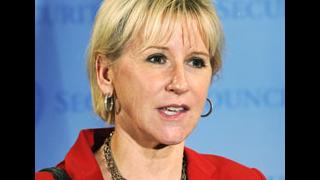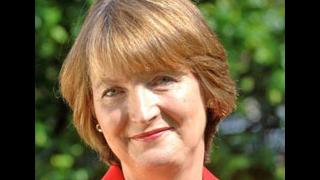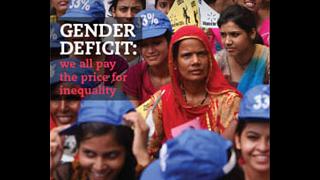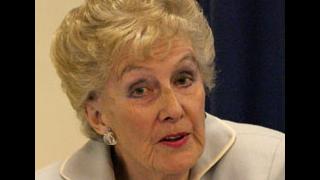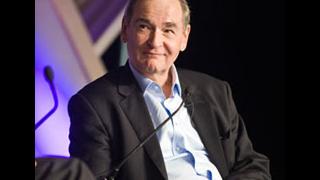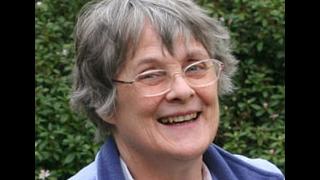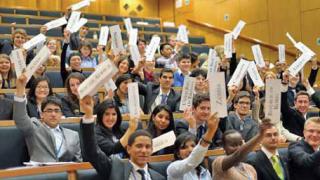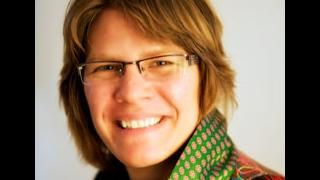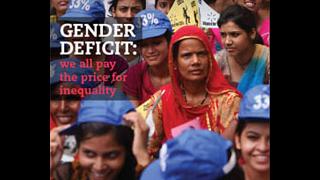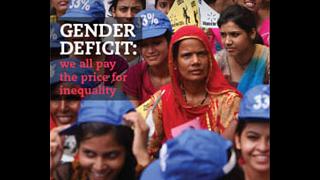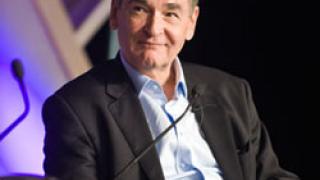
Sir Jeremy Greenstock was appointed chairman of the UNA-UK Board of Directors in February 2011. A member of the British Diplomatic Service from 1969 to 2004, he served in stations including Washington DC, Paris, Dubai and Riyadh. He was British Ambassador to the UN from 1998 to 2003, attending over 150 meetings of the UN Security Council. From September 2003 to March 2004, he served as UK Special Representative for Iraq.
In this wide-ranging interview with New World's Editor, Sir Jeremy talks about his experiences, explaining his cautious stance on military interventions, why fragmentation is the biggest challenge facing the world and how enlightened self-interest, though it might sound like a 'weasel phrase,' can lead to positive collective action. He also sets UNA members some reading homework and talks about their vital role in supporting the UN at a time when its difficulties are multiplying but its importance has never been greater.
What role should the UK play in international affairs and has this role changed dramatically since you joined the Foreign Office in 1969?
The world has changed dramatically, and so too has the UK's role. For a start, we are a smaller and less powerful nation than we were in the decades after the Second World War. Since then, we have remained in the shadow of the US. But we have been at all the international tables that matter, globally and regionally - the UN, the EU, NATO, the Commonwealth and so on. We continue to have a global spread of diplomatic representation and the capacity to project our constantly diminishing military power. We remain adept at assessing what's going on in the world. All of this gives us something that's actually quite unusual in international affairs: a global understanding and reach, even with a small amount of actual power.
Only France can match that atavistic and continuing capacity. Germany - perhaps the most powerful EU economy - can't. Even the US can't, because it was never a colonial power. This gives it a moral advantage that I don't think it has been fully effective at using, but also means that the US lacks the feel for what happens inside other nations. And so the UK still has a great input into international affairs. But our relative power has changed and we need to be conscious of that. We cannot do anything on our own. We have to work in partnership, hopefully always under UN authority when security is involved, and if we have a UN Association that can make these points, then I think we're contributing something.
So what should UNA-UK's priorities be?
I think we have to be careful to choose the right ones. Given the number of issues that the UN is engaged in and our tiny staff team, we must ensure that we focus on things that a small organisation can pursue with results. The UN is necessarily about development, human rights and security, so if UNA-UK has a programme that combines these elements, then we are on the right track. But these are big, ambitious issues. We have to remain realistic about what we can achieve. I'm known as a hard-headed person and, with my diplomatic experience, I hope I can help the executive team to make these decisions.
Where do you feel UNA-UK can have the most impact?
Two areas in particular. One is government policy. Foreign ministries, in London and elsewhere, find it very difficult to get programmes implemented. There are so many emerging national centres of independent action that many more countries now have to be consulted before you can get a global programme going. The UK is still struggling with that and I think that UNA-UK's input into British foreign policy can help the UK to refine its approaches, so that it retains the ambition but recognises how difficult it is to achieve implementation without help from civil society. UNA-UK can be a bridge between the UN, government and civil society because it has a membership. This membership is part of our legitimacy.
The second area is global citizen responsibility. Governments cannot do everything. Individuals must contribute and UNA-UK is one example of how the institutional and the individual are linked. Unless both are working in tandem to some extent, programmes cannot be achieved. I don't think progress can be made on climate change unless individuals contribute. Human rights abuses can't be tackled by governmental action alone. Governments and individuals must cooperate and compromise for gains in development, sustainability, rights and security. And UNA-UK can stand up for that.
Is that what convinced you to take on the role of UNA-UK chairman?
I very much admired David Hannay's tenure of the chairmanship and was flattered when he suggested I follow him. When you have served at the UN, you develop a loyalty to the organisation and an admiration for it that doesn't leave you. It is the only truly global organisation and it needs a tremendous amount of support from organisations like UNA-UK, which can influence governments, because it depends on governments understanding the need for collective action.
Your time at the UN seems to have made a deep impression on you. What are you most proud of?
I don't think back in terms of pride, I have to say. I don't think I'm made up that way. I've enjoyed almost all my career experiences, and I'm conscious of quite a few deficiencies and failures, but I feel I contributed the most at the UN. I can't, I think, better my recollection of my work in New York as the most interesting, most challenging, and, at times, the most moving experience of my diplomatic career. I think the work the UN did on Africa in my time at the Security Council, in the development committees and agencies, was the most important and the most effective of the issues that I have taken up in my career. I say Africa because two-thirds of the Security Council's work was on Africa. But East Timor was also an important moment. I think the Council's intervention in 1999 actually enabled an oppressed people to become free, so that too sticks quite firmly in my memory.
And what experience would you say moved you the most?
If you want to think of moments, I'd say taking the Security Council mission to Sierra Leone - basically the poorest nation on earth - in 2003, during its period of greatest trouble. Sitting down with the Freetown market women's association and hearing those women clamouring for peace and a better life for their children, which they could only achieve with the help of the international community, was one of the most moving examples I can remember of the need for the UN. It showed the good that the UN is capable of doing and the awareness of people in distress that the UN is there to do them good.

One doesn't often hear about the UN doing good in Iraq. What role can and should it play there?
After the Canal Hotel bomb, when UN Special Representative Sergio Vieira de Mello and many members of his team were tragically killed, the UN was absent from Iraq for many months. But the UN came back, and although the scale of what the UN has done there hasn't been that large, it has two things to offer. First, it represents the interest of the global community in helping Iraq to become a stable and more prosperous country and, therefore, a country that is not going to threaten peace and security in the future. So there is, if you like, a metaphorical contract between global citizens and the Iraqi people. Second, it can offer practical help, with health, refugees, building democratic institutions, promoting civil society, not least women's groups, and many other things.
There are mixed feelings about the UN among the people of Iraq - many of them saw the UN as the conveyor of sanctions. Inside the UN community, meanwhile, there remains a certain amount of criticism for what happened in Iraq - a distaste for the original invasion and a reluctance therefore to put their full effort into Iraq. But I think that was overcome to a large extent by the feeling that the Iraqi people deserve UN help and I'm glad to see that this has been the approach.
In your evidence to the Iraq inquiry, you said you considered the 2003 invasion to be 'legal' but not 'legitimate'. Could you explain that distinction?
Yes, it's puzzled people but I was making a very deliberate point so let me explain it again. Initially, the invasion of Iraq rested on UN resolutions 678 and 687, going back to 1990, but the legal arguments were so abstruse, even if they were correct, that the political effect - persuading people we were doing the right thing - was weak. I therefore wanted to see those resolutions renewed, which I believe happened in the form of resolution 1441 of 8 November 2002. The interpretation of resolution 1441, however, was disputed in the early weeks of 2003, so there was still a perceived deficit in legitimacy.
So I was contrasting the right to use force under 678 and 687, which had never been repealed in their effect, with public understanding of, and political support for, that argument. This is what I call a matter of legitimacy. We didn't have enough international support for what we were doing, particularly for handling Iraq after the invasion, and I argued this privately within my own government before it all came out. As it happened, in late May 2003, after the invasion was over, the UN passed a new resolution -1483 - which established a basis for the coalition powers to administer Iraq temporarily. But, while that gave us a legal basis for being there, it did not necessarily provide the legitimacy for what we were doing, in terms of political support in the Arab world and among the majority of UN member states. We were always short of full legitimacy, but we always had a legal basis.
Sticking with the theme of legitimacy, would potential gains in legitimacy derived from expansion of the UN Security Council outweigh a potential loss in efficacy?
Good question. I think representativeness is the most important argument in the Security Council reform debate, but effectiveness is a close second. A Council of, say, 24, as opposed to 15, probably would be more difficult to manage. The General Assembly is, in my view, a largely ineffective body because you can't have an effective committee of 192. What tends to happen in large committees is that small groups form to make things work. The danger about a larger Security Council therefore is that the permanent members might find it easier to fix.
In my five years at the Council, the permanent members [P5] did not caucus as a matter of course. They did so only on one issue - Cyprus - or when specifically asked to by the elected members. Between 1998 and 2003, for example, when the P5 were divided on Iraq and the Council was paralysed, the other members said: Go sort yourselves out or none of us can act. In a larger Security Council, caucusing may well happen more frequently. So your question about effectiveness is very important, but I still think that a bigger Council would be more representative and therefore have more legitimacy.
In a letter to New World, UNA Sudbury members accuse the P5 of excessive national interest. The UK has described its foreign policy as 'enlightened self-interest'. Is this a useful approach?
'Enlightened self-interest' sounds like a weasel phrase and we have to be careful of it, but let's be clear-headed - no state can be anything other than self-interested. National interest is a building block of the global political structure, but self-interest is also a collective thing. We can't be interested in our own environmental objectives without approaching them on a collective basis because the environment doesn't recognise frontiers. We can't achieve our global security objectives unless we work with others.
I think the UK is very conscious of that and it has a tremendous amount to offer to international organisations - in bringing together countries' approaches, in drafting statements and resolutions, and in negotiating compromises between conflicting positions. We might make mistakes from time to time, but I think if you asked the other 191 UN member states which three countries contribute the most to working out in practice how to put together UN programmes, the UK would feature on most of those lists. We might be short of flair or ambition at times, or complacent in thinking that we can fix something without looking at the consequences, but the UK is generally very competent in its approach to intergovernmental activity.
The UK was seen as a driver of UN action on Libya. In the run-up to Security Council Resolution 1973, you cautioned against rushing into a no-fly zone. Is that a result of your past experiences?
I think past experience certainly plays a role. I have no difficulties with the concept of an intervention to constrain brutal treatment by a government of its own people. In my own mind, I would require UN authority for that, and that is UNA-UK's position. In the case of Libya, if certain members of the Security Council had blocked resolution 1973, I would have been satisfied with broad international support, as long as it included the Arab world and Libya's neighbours to make it fully legitimate.
If I express caution, it's because in my experience, the unintended usually happens when you use military force. You can't police a no-fly zone without using weaponry, particularly against ground-air defences, and that tends to kill civilians. I'm not sure that we know what our political strategy is over Libya because I don't know whether the Libyan people yet know. Being seen to take sides in a civil war is always dangerous for the international community and an intervention can change the perception of legitimacy, of the rebels, the regime, of us. If we did such a thing in Iran, the regime would urge the nation to consolidate against external aggression, which would change internal politics. Indeed, the Iranian regime has used these arguments. So there are always questions to be asked, but if they can be settled satisfactorily for most people, then I'm not against intervention.
What is the greatest challenge we face? Is it instability of this kind?
At the global level, I would say fragmentation: the multiplicity of actors and the selfishness of individuals, groups and nations. Under the influence of globalisation in economics, communications, knowledge - everything - there has tended to be a fragmentation of identity, culture, religion and politics. In this way, globalisation breeds polarisation.
Can the UN tackle this challenge? Do you think it will become more or less important?
The context of your question is very complex. There is a historical tendency for international institutions to fade in their effectiveness because they reform themselves with great difficulty. And national interests appear to be growing stronger as more nations are able to implement their own objectives with more power. This is a particular problem for the UN because it is primarily a forum of nation states. And if nation states have increasingly diverse interests and approaches, it's more difficult for the UN to bring them together.
That, of course, makes the UN even more necessary. As a forum and through its programmes, the UN has a tremendous amount to offer and UNA-UK must call for better support, financially and politically, for those UN programmes that do the most good. Like all institutions, the UN must adapt. We must try to reform it where we can, patch things up where we can't and replace certain functions if necessary, or fold other activities over them, as the G20 has folded over the G8, and as regional organisations, in some issues, fold over the UN. But the UN remains essential because there is no other global institution. That is its enduring importance and we must all try to persuade our governments to devote more effort to making it work.
You've shared your thoughts on the biggest global challenges. What do you, as a person, worry about?
I worry about the possibility of weapons of mass destruction getting into non-state actor hands - perhaps the biggest and most real security threat. More generally, I worry that our institutions will not be able to bear the burden of the complexity of international affairs over the coming period. What cheers me is the ingenuity of right-minded human beings in finding answers to a lot of these things, in science and in policymaking.
And in diplomacy. Which brings me to something I've always wanted to know: is there camaraderie at the Security Council? Can you forget politics and go have a drink?
There is an extraordinary personal chemistry between permanent representatives. Most people are probably not aware that diplomats with the right sort of ambition can and do work together across their government instructions. If they see an opportunity for compromise on which they haven't received instructions from their capital, they should be able to follow that instinct, provided they know what they're doing and can persuade their capitals that the end result will be better. There were occasions when I did that (which I'm afraid I can't talk about) and things got going in the right direction, particularly on Africa. That is something very special about diplomacy at the UN.
You have covered an enormous amount of ground in this interview. Is there a book you would recommend to UNA members that explores some of these issues further?
Of recent books, I recommend Strobe Talbott's The Great Experiment because it's inspiring about the UN. In terms of essential reading, my advice would be: read a book from every continent - the most inspiring book you can find - within a month and try to understand the different perspectives.

